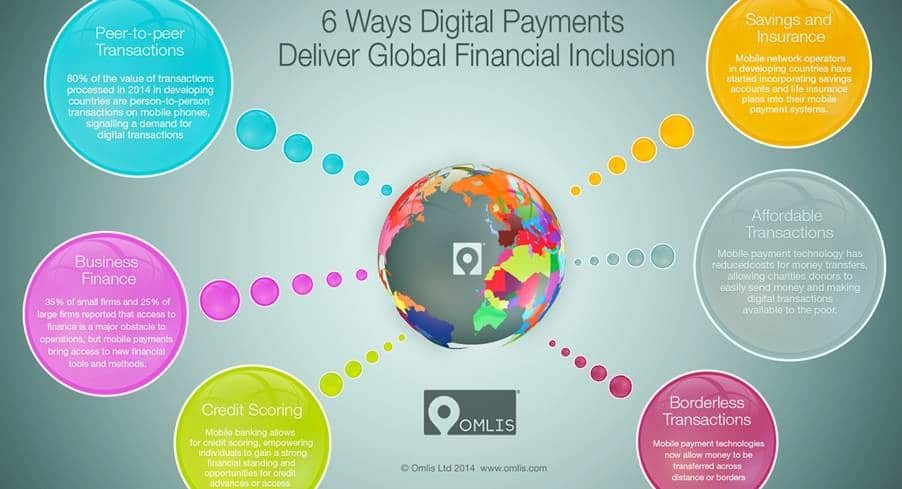According to the World Bank, half of the world population in the 'working' age cohort does not have a bank account. Despite this, 90% of people in the developing countries have a mobile subscription and 84% have a broadband subscription, as part ITU's data. These figures were put together by Omlis, a provider of global mobile payment solutions. The figures clearly indicate that the mobile payment is poised to become a major enabler for financial transactions in a host of countries, where the internet and mobile devices will become mediums to effect payments, make transfers and make purchases. It also points to the opportunities that abound for providers of mobile financial services and providers of digital services such as mcommerce and video and entertainment services.
Omlis released an infographics in conjuction with the 2014 World Development Information Day by the United Nations which took place on the October 24th - a day UN declared as World Development Information Day, promoting improvement of dissemination of information and international cooperation for development.
According to Omlis, mobile payments in particular represent new potential for emerging economies to gain access to mainstream financial services like money transfers and credit scoring as it offers reduced transaction fees, making transactions affordable. Mobile payments bring new ways to pay for both individuals and companies, and allow transactions across borders. Financially, individuals can gain credit through use of mobile banking technology, opening up new possibilities for gaining access to funds, added Omlis.
Markus Milsted, CEO of Omlis
Digital payment technologies can end financial inequality on a global scale by providing previously 'unbanked' populations with much needed financial services. The mobile revolution represents a cost-effective means to integrate otherwise excluded members of society into a structured financial system. Many current mobile payment services on market aren't inclusive for all, with expensive hardware requirements for businesses and with requirements for high-priced smartphones in exclusive regions. This is a key issue within the mobile payments space. Mobile payments aren't just omni-channel or omni-tech, but they present an opportunity for an omni-culture where transactions are available across borders. It also provides the opportunity to remove technical inequality on a global basis.




















